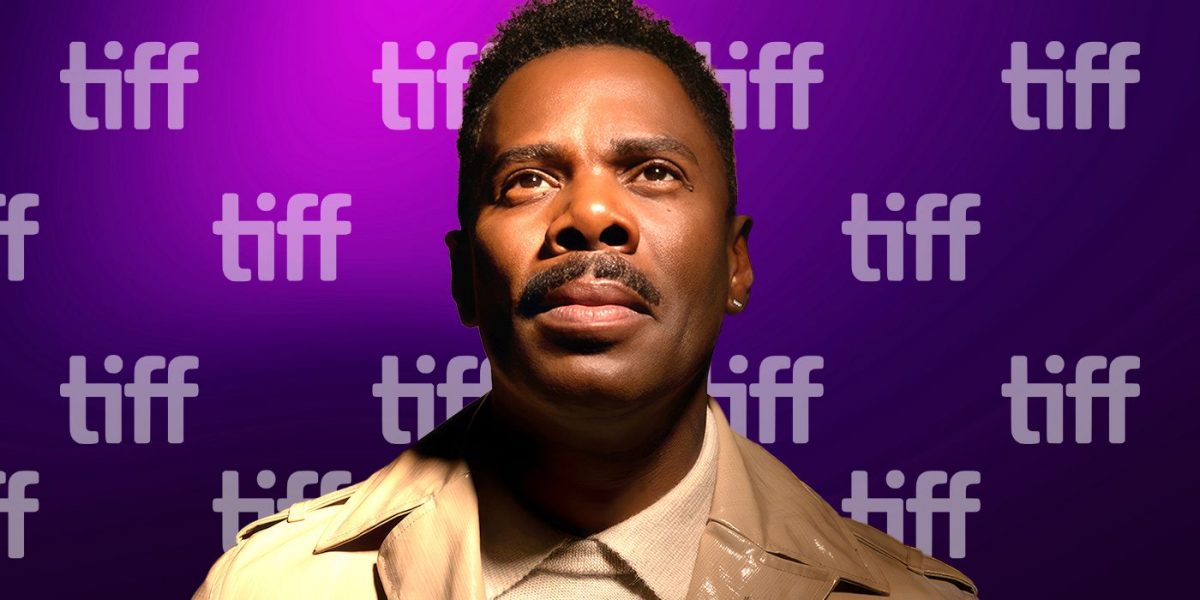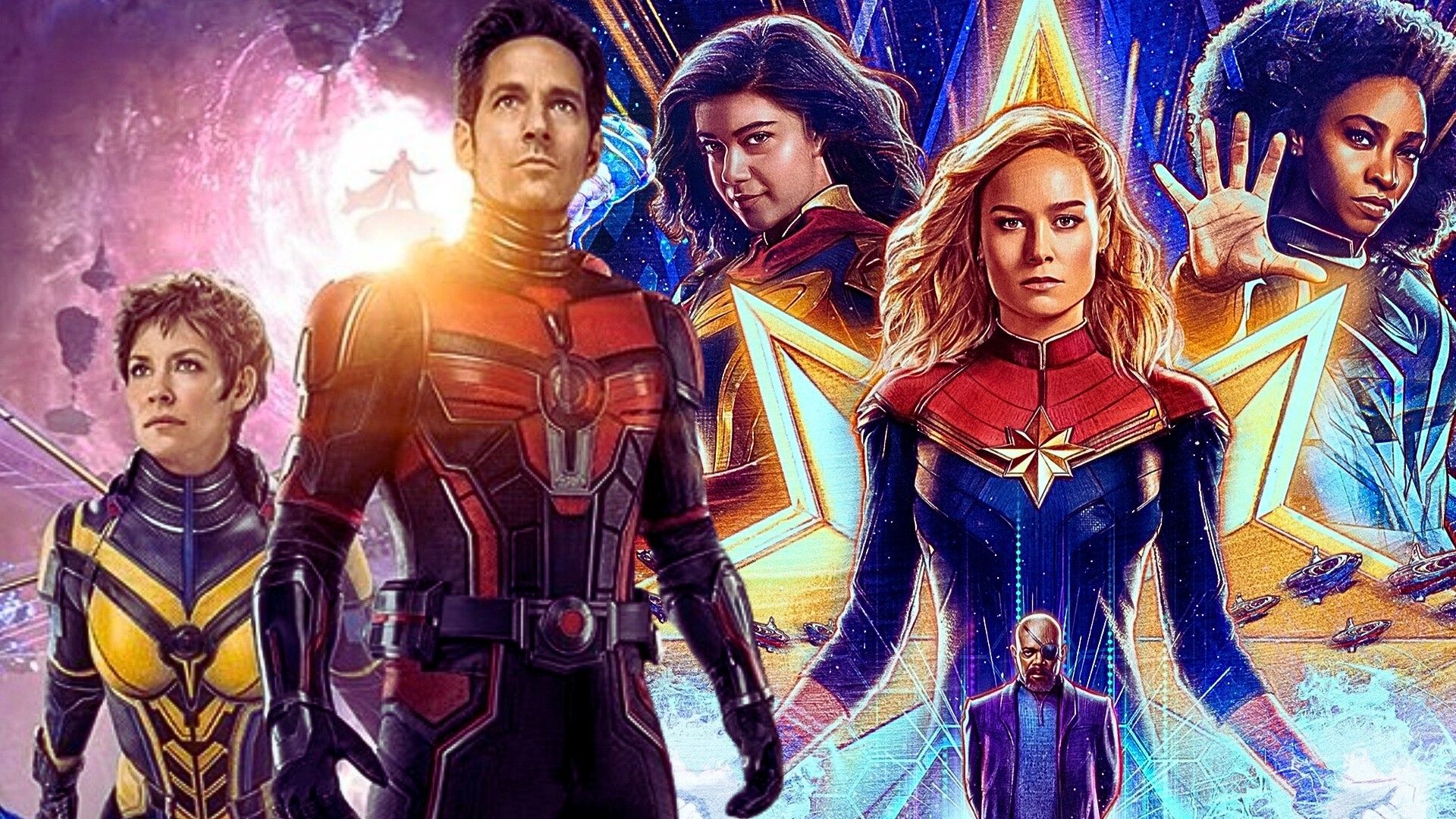
‘Sing Sing’s Colman Domingo Talks Working With Former Inmates in a Prison
Sep 22, 2023
The Big Picture
Sing Sing is a film based on the true story of a theater program inside a maximum security prison, highlighting the friendship between two very different inmates and their journey through the program. The film utilized a radical profit participation model, ensuring that everyone on set, from the lead star to the production assistants, were equally paid for their time and contributions. The Rehabilitation Through the Arts (RTA) program portrayed in the film has been successful in inspiring and transforming inmates by providing them with a creative outlet and a sense of purpose. The film aims to raise awareness about the program and its potential impact.
At this year’s Toronto International Film Festival, Colman Domingo (Candyman) joins writer and co-director Clint Bentley and costars Clarence Maclin and Paul Raci (Sound of Metal) to celebrate their film Sing Sing from co-director Greg Kwedar. The crew stopped by Collider’s studio at the Cinema Center by MARBL to talk with editor-in-chief Steve Weintraub about bringing such an important film to audiences and the potential it has to raise awareness for serious issues within the prison system.
Sing Sing tells an inspired story based on the real lives of the Sing Sing Correctional Facility’s inmates and enlists the talent of the formerly incarcerated. Domingo stars as Divine G, a prisoner who assumes a leadership role in the facility’s theatre workshop, Rehabilitation Through the Arts (RTA), held every six months when the inmates gather together to choose their next play. Through their performances, the men find connection and joy, and when Divine G recruits a new member, Divine Eye (Maclin), his suggestion to perform a comedy creates a shift in the group dynamics. Not far into their production, Divine G sees the new member’s struggle with opening up to the troupe and, while planning for his upcoming clemency hearing, attempts to bond with Divine Eye. The group allows the men to unpack their painful experiences while escaping to fantastical worlds outside the walls of the facility.
During their interview, Bentley shares a little about the profit participation model they utilized to ensure that everyone on set, from the lead star to the PAs, were equally paid for their time and contributions to the film. The payment process was in line with Sing Sing’s themes, as well as hiring former inmates whose participation in the RTA program made this inspirational story possible, and costar Maclin shares his experience with the actual program and its benefits. To find out more about filming on location, how Domingo got involved, and the ways Sing Sing changed in the edit, check out the video above or you can read the full transcript below.
Image via Photagonist at the at Collider TIFF Media Studio
COLLIDER: I hate starting with the generic thing, but no one watching this interview will have seen the movie yet, so who wants to bite the bullet and explain what the film is about?
CLINT BENTLEY: The film is based on a true story about a theater program inside of a maximum security prison at Sing Sing. It is based on, really, a friendship between two men who are in this program in the prison and they are very different people, very different personalities, need very different things from each other and the program; one is Divine G, played by Colman Domingo and the other is Divine Eye, played by Divine Eye.
You’ve done that before.
BENTLEY: [Laughs] Yeah, a couple times.
One of the things I want to start with, which I found so fascinating, is the way everyone was paid on this film, which is not actually about the movie itself, but the fact that it’s so different and so interesting and cool and it makes everyone very invested in making the film.
BENTLEY: Yeah, thank you. It’s something that Greg Kwedar and I, we really started it on our last film, Jockey, of trying to figure out how– There’s a lot of inequality and lack of transparency even in indie film. We’re dealing with it across the board right now with the strikes, of course, and so we pioneered this approach where everybody gets paid the same thing, everybody on crew gets paid the same day rate or week rate based on the SAG rates – that’s from our lead, Colman, all the way down to the PAs. The only difference is the time you work. Then we also split the equity with everybody on a very clear and transparent level where it’s standardized, so the amount of time you work determines how much equity you get.
I really want to say that’s amazing.
BENTLEY: It makes such a difference in treating people as owners and as partners in the project rather than just as people who are working on it, and then you say, “Thank you, goodbye.” They really get to ride it all the way through with you in a way that makes the work better, it makes them feel better, it makes you feel better, and if the film wins, everybody wins.
Colman, if you don’t mind me asking, you’ve been on a lot of sets, did you notice a different kind of energy making this because of this radical profit participation model that is so different than the other projects you’ve worked on?
COLMAN DOMINGO: I think so, but it also points to the way that Greg and Clint and (producer) Monique [Walton] invited everyone in as collaborators in every single way. So, that means that every single person truly had a voice in how we were doing this, even the way we were shaping scenes, even the way they were built with Clarence and I. I feel like we all had stakes in it because you were an equal partner in every single way. You never felt like you were just used for your work and sort of discarded. You felt like, “I’m seeing this all the way through.”
Image via Photagonist at the at Collider TIFF Media Studio
I really want to commend you guys. I thought this was so well done, and one of the reasons is because of the on-location filming. Everything just felt very authentic, and like the camera was sort of just a silent observer. Can you sort of talk about filming in a real prison and the behind-the-scenes of the making of the movie?
PAUL RACI: Listen, we’re in an actual prison. You can’t open the windows, and you look outside and there’s a courtyard with all this barbed wire on it. It just gives you a real authentic feeling of what it must be like in there. There’s no ventilation, a gigantic fan’s running to keep us a little bit cooled off, and then when we had to shoot, the fans go off and we’re schvitzing. It was fantastic. I mean, not a comfortable environment to shoot a film in, but it did bring some authenticity to it. I really appreciated the whole experience.
CLARENCE “DIVINE EYE” MACLIN: For me, there was a little apprehension going back into prison. I already served 20 years in prison, so I was a little apprehensive about going back. But going back in this time, I had a purpose; the purpose was to get this message of who we are out to the world, and what we can do, and how we can contribute to society. We needed to get that message out.
DOMINGO: The whole experience, I think, levels you in a way. You have an even more intentional purpose in what you’re trying to tell, which is to share this program and how beneficial this program is to human beings inside the prison system, how art saves lives, it transforms, it gives words to your experience and to let you know you’re not alone in the world, and that’s what I know that my brother here has taken away with this experience and how it’s propelled him into a different place in his life.
I know you get offered scripts, you’ve worked on so many different projects, what was it about this project that said, “I absolutely have to do this?”
DOMINGO: I was first sent the Esquire magazine article that was based on a story on these men at Sing Sing in this program, and I thought, “Wow, this is incredible.” I understood that these men loved what I loved, which is theater and Shakespeare and how it has transformative powers, and so I thought that was fascinating. And then they invited me in to let me know how we’re gonna create this, not only in a very, like you said, equitable way, but also in a way that really invites everyone to bring their best and bring all their ideas and shape this based on what we were all interested in so we all have ownership of it. I think every single thing that we did, with every single day, was work that we truly all believed in, and we wrestled with it even on the day. Every day we would wrestle with, “Was that scene right? Is this the best expression of this world? Is it honest? Is it part of the experience and is it theatricalized in a way that helps bring it to film and cinema?”
We all feel ownership of it, so I knew that that was something I wanted to be a part of. I mean, as you know, I’ve been working for a long time, and I think the things that I really care about deeply that I wanna be a part of, as a producer on this as well, are things that I feel like change the world in some way. I think that’s why I have access. If I have access and I have more eyes on me, I want to say, “Hey, I wanna draw your eye to this because I think his story matters. I think this experience matters, and this is what we need more of.”
Image via TIFF 2023.
One of the things is the success of the RTA program in the prison, I was looking at the numbers. So many prisoners are re-incarcerated, but the success rate of the RTA program is phenomenal. Can you talk about the success of the program and what needs to happen to actually bring this program to more prisons? It seems like it’s very successful.
MACLIN: The success of RTA comes from the men in RTA, the people, the participants, the volunteers, individuals being woken up by other men, by other people who care in prison. You have individuals who have been written off by society. Basically, once you get a sentence, 20 years or whatever, society figures you’re dead already; you no longer can contribute to society. However, RTA recognized that these men still have something to contribute. And by having volunteers that come in and actually invest their time and go through all the things that our visitors have to go through—the volunteers have to get searched, pat frisked, everything just to come and help us—so when they do that, we look at them differently, they look at us differently, and we meet in the middle. They took two steps toward us, so it’s our obligation to take two steps toward them and live this thing out. And actually, men have to choose themselves to be men. If you’re waiting for corrections to correct your behavior, it will never happen because they don’t want to correct your behavior, they want you to come back to prison. This is how they keep their job. That keeps them employed, so correcting our behavior is not on the agenda. So if you don’t come in and have the presence of mind to correct your own behavior, if you don’t have that in you, then they will let you die and fall to the wayside, as far as society is concerned.
But we figure we have something else to contribute, and what we look out and see where we can fit in is addressing the issues of the youth. That’s what I do now. I reach out to the youth. I work with at-risk teens to try to prevent them from going down a path that I took, and I noticed that while working with these teams, there’s a lot of things that all of us can do to contribute to our children because a lot of the children have lost faith in us. They lost faith in us because we’re afraid of them. We’re afraid to correct their behavior. They really want correction.
RACI: I love this guy. He’s just awesome.
MACLIN: That’s what this program brought to me to bring to the world.
Image via TIFF 2023
I believe all the performers, outside of certain people, were all previous members of the program who are on camera, and it just felt so authentic as I was watching it. Can you guys sort of talk about that aspect and what it was like for the two of you?
DOMINGO: I think it’s kind of cool the fact that these men who went through this program, they had an opportunity to come back and sort of play a version of themselves and to also shape a narrative in a film, so it shows their work and craftsmanship as actors as well. I don’t want that to be discounted. It was very real and very meta and close to the bone, yet it took such tremendous skill to go in and find a dramatic narrative and do scene work to actually find the beginning, middle, and end of the scene again. So, that was fantastic.
And I love the fact that we all have different experiences, and I thought we had to meet in the middle. Some have more experience on camera than others and then we share with each other, we’re like, “Oh hey, if you just did that or this…” and they’re like, “Oh, Colman, how about you do this?” I’m like, “Great.” We’re sharing with each other to help each other make the most honest experience possible for each other.
RACI: Off-camera talking with these guys, getting to know them, or having lunch, and I would ask several of them, “If you don’t mind me asking, how did you end up here?” And I hear these horrific, horrible stories of what they did, the mistakes they made, and more than three or four guys said to me, in different settings, “If I only had had this before I did what I did, I wouldn’t be, I wouldn’t have ended up in prison.” Just reaching inside of yourself to find the man that’s really in there, the lover that’s in there, through the arts, it’s a beautiful thing. And yes, every damn prison through this whole country should have a program like this. Every one of them.
Image via TIFF
I love talking about the actual editing process because it’s where it all comes together, so talk a little bit about how the film changed in the editing room in maybe ways you didn’t expect.
BENTLEY: This was one of the easiest ones we had to edit, and our editor, Parker Laramie, who edited our last film, as well, is incredible in helping us shape the stories. The biggest problem with this one was just an incredible amount of material that we had from these men who gave so much of themselves from their own experiences. There’s a scene in the movie, for example, [where] they’re auditioning for the roles in the play and everybody’s bringing their own kind of spin into what they’re doing. We could have had a 30-minute section for that that ends up at five minutes in the film, and the stories that they all shared in certain sections.
Greg did a beautiful job in the direction and in approaching each scene and each moment to create a space for yes, as Colman was saying a minute ago, what the original incarnation of the scene was from the page, but then also opening it up to just whatever truthful thing that any of the men wanted to bring out in that moment and felt comfortable sharing, or felt like it needed to be there. And so, really, the hardest part of the edit was figuring out what to take out. It could have been a two-and-a-half-hour movie easily.
Image via TIFF 2023.
I know this is a little bit generic, but it’s really cool that you’re part of the Toronto Film Festival. I love this place, I love this festival, can you touch a little bit on what it means to premiere the film here and be a part of the fest?
DOMINGO: It means everything. I’ve fallen in love with Toronto. I was working on another project here earlier this year. This is my third time at the festival, and the audiences, they’re lovers of film, and they love something new and a new way of telling story. Cameron [Bailey] and his whole team, they’re just the most welcoming, loveliest people in the film festival circuit. That’s what I think.
BENTLEY: I would agree with that. It’s my second time here, and Greg’s second time here, and it’s got this mix of being such a celebration of film and such a beautiful festival, and the audiences are lovely, and the staff is amazing, and it’s also got the size, as well, but it doesn’t lose that heart. It’s it’s such a wonderful festival to bring a film to and let that be the platform out into the world. It’s amazing.
RACI: This is my third year in a row, so when I come next year…I mean, I love it. It’s awesome. It really is.
Image via Photagonist at the at Collider TIFF Media Studio
I agree. This is your first time?
MACLIN: Yeah, this is my first time, my first time in Toronto.
DOMINGO: Won’t be the last.
MACLIN: [Laughs] I’m having a great time here. I’m enjoying this festival. I’m enjoying the electricity that’s going around the city. You know, I got here yesterday, and I just put my bags down and just walked. I just wanted to go walk around and see the people and feel the energy, just to get the energy of the area, and the energy of this area is magnificent, man. It’s a beautiful thing, man. I looked out my window and recognized it’s a giant woodpecker outside my window. I never seen it before.
DOMINGO: [Laughs] Really?
MACLIN: It’s a giant woodpecker out there!
DOMINGO: Come on, Canada, with the woodpeckers!
Sing Sing premiered at TIFF 2023. Special thanks to MARBL Restaurant for hosting Collider as well as the additional sponsors Sommsation, a top wine experience brand and online shop and Molson Coors’ Blue Moon Belgian White as the beer of choice at the Cinema Center. Additionally, Moët Hennessy featuring Belvedere Vodka featured cocktails and Tres Generaciones Tequila.
Publisher: Source link
The Internet Can't Handle Taylor Swift's Alien Abduction Optical Illusion
It's giving Signs.View Entire Post › Disclaimer: This story is auto-aggregated by a computer program and has not been created or edited by filmibee.Publisher: Source link
May 15, 2024
Meet Real Housewives of Atlanta’s Newly Revamped Season 16 Cast
Attention, Bravoholics: Get ready to meet your newly revamped group of Georgia peaches. The Real Housewives of Atlanta's season 16 costars have finally been revealed amid a recent cast shakeup. Returning to the reality show after a two-season hiatus is Porsha Williams, who will…
May 15, 2024
34 Couples Who Were Together 5 Years Ago That Definitely Aren’t Anymore
34 Couples Who Were Together 5 Years Ago That Definitely Aren't Anymore And corona was just a beer. Also, these couples were dating... 2. Adele and Simon Konecki 4. Zachary Quinto and Miles McMillan 5. Emma Roberts and Evan Peters…
May 14, 2024
Cute & Practical Hiking Outfits That’re Perfect for Hitting the Trails
We independently selected these products because we love them, and we think you might like them at these prices. E! has affiliate relationships, so we may get a commission if you purchase something through our links. Items are sold by…
May 14, 2024











